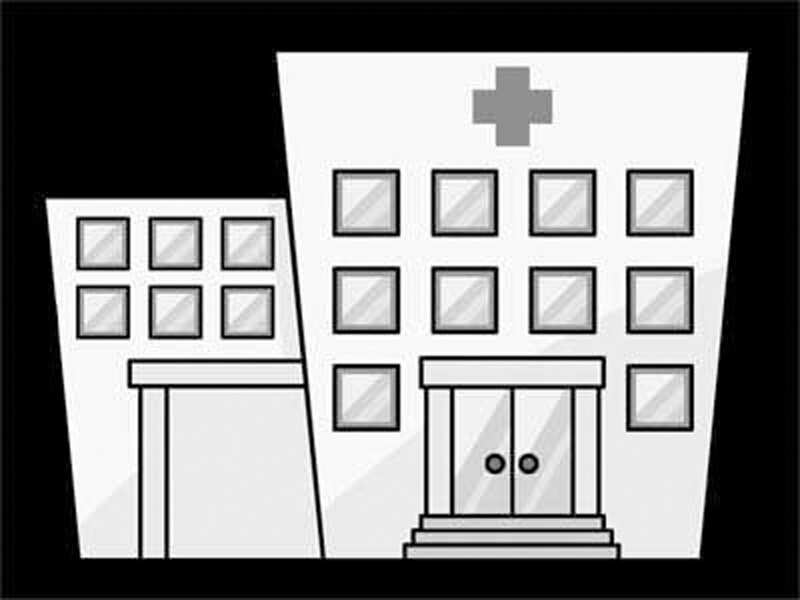 LUDHIANA: High temperatures during the day, accompanied by a blazing sun, seem to show no mercy to the citizens of Ludhiana. With temperatures set to rise in June, one can only speculate over the upcoming heat wave that is expected to soon engulf the city. One side-effect of the heat wave has become apparent — leading hospitals in the city like Christian Medical College and Hospital (CMCH), Dayanand Medical College and Hospital (DMCH), Raghunath Hospital, and Civil Hospital have recorded a three-fold increase in the number of patients with typhoid and jaundice, among other heat-related diseases.
LUDHIANA: High temperatures during the day, accompanied by a blazing sun, seem to show no mercy to the citizens of Ludhiana. With temperatures set to rise in June, one can only speculate over the upcoming heat wave that is expected to soon engulf the city. One side-effect of the heat wave has become apparent — leading hospitals in the city like Christian Medical College and Hospital (CMCH), Dayanand Medical College and Hospital (DMCH), Raghunath Hospital, and Civil Hospital have recorded a three-fold increase in the number of patients with typhoid and jaundice, among other heat-related diseases.Physicians are also receiving an increased number of patients who suffer from heatstroke and hyperthermia. Children going to school in the blazing sun have also reported sick with an increased frequency. Men from the ages of 20 to 50 report more heat-related diseases than women, and doctors report that the pattern of diseases has changed as well. Almost 60% of the cases are now due to high temperatures outside. About 10% of those patients are the ones suffering from heat strokes and hyperthermia, 30-40% are reported to be suffering from food and water-borne diseases, and 40% of the patients are reported to be suffering from diarrhoea.
This evidently shows that an important effect of rising temperatures is on human health. With rising temperatures, the dangers of heatstroke and hyperthermia increase manifold, the symptoms of which include lethargy, drowsiness, mental alterations, dehydration, and the person may even become unconscious. The risk of water-borne and food-borne diseases increases as well. Hospitals all over the city have reported a rise in patients suffering from diarrhoea, typhoid, hepatitis, and jaundice, as high heat and humidity enable the growth of bacteria and other pathogens in food and water.
To escape the sun’s fury, it is advised that one should avoid going outdoors between 12noon and 4pm, when insulation is at the maximum level. It is also advised to keep oneself hydrated at all points, and ensure that children are not left in cars or basements alone. Dr Mohanjeet Kaur, a physician in the city, says: “The most important tool in summer is keeping oneself hydrated. Have plenty of liquids, and incorporate chaach, lassi, coconut water, fresh fruit juices, thandai, and lemonades in your diet. Avoid hot, spicy, and fat-rich food at all cost. Carry a water bottle with you, wherever you go.”
Dr Ashish Saxena writes: “Heart patients to be careful this summer. If you have coronary heart disease, you may find you start to experience angina, or your angina worsens in summer, because the hot weather increases the workload on your heart and the demand for oxygen, especially when you are more active. It’s particularly important to stay cool if you have a heart problem, where your heart does not pump as well as it should. If you’ve been told to restrict your fluid intake, speak to your GP about other ways to keep cool in summer. If you take water tablets and start to feel dizzy or light-headed, let your doctor know. Your dose can then be reduced or stopped for a little while, if needed, until you feel better.”
One’s skin too is adversely affected because of excessive heat. One is at risk of developing heat rashes caused by the blockage of overworked sweat glands, causing constant itching and painful rashes. Acne breakouts too pose a humongous problem in summer. Exposure to the sun for long durations can also cause sunburns, where UV-A and UV-B rays of the sun damage the skin, leaving it inflamed, dry and blistered. Heat boils and fungal infections are caused by high temperatures.
Doctors and hospitals have seen an increasing trend in these diseases as well. They have seen a cumulative 70% increase in skin rashes, acne breakouts, and fungal infections. Fungal infections on one’s feet have shown a doubling of statistical figures. Dr Bobby Bajaj, a leading skin specialist in the city, said: “The sun’s rays can cause permanent damage to the skin, if appropriate precautions are not taken. It is highly advised to wear a sunscreen at all points, wear loose-fitting clothes, and cover your arms whenever you step out of the house.”
Thus, to beat the heat and protect oneself from various diseases associated with this weather, prevention is indeed better than cure. While the sun might not be planning to shower any mercy on citizens any time sooner, it is in everyone’s best interest to equip themselves with measures to escape the heat as much as possible.